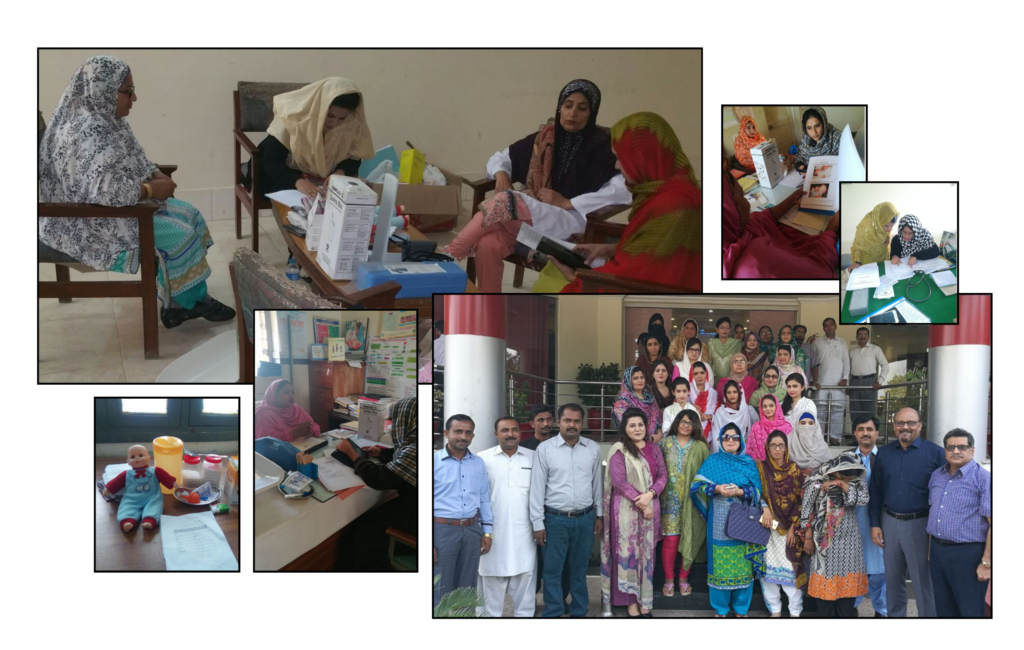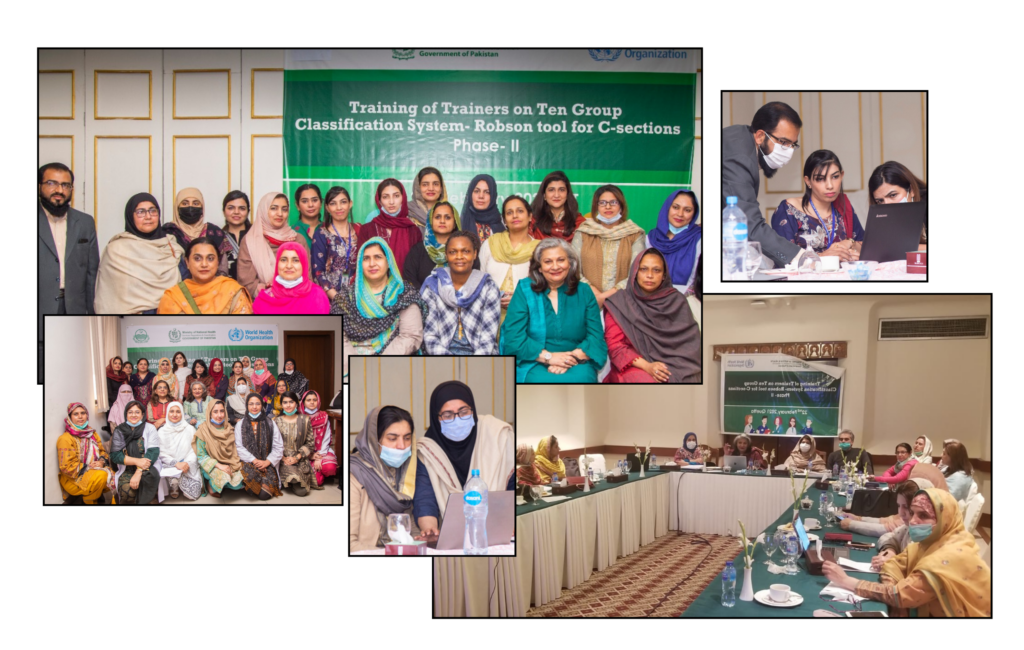RMNCH
-
External evaluation of the Umeed-e-Nau (UeN) initiative to support women and girls in Pakistan (2017 - 2023)
-
Technical Support in Strengthening the process of Institutionalization of Robson’s Ten Group Classification System (TGCS) for Rationalizing the use of Caesarean Section in Pakistan (April-Nov 2021).
-
Development of Situation Analysis Report and digital data management Application and dashboard for Robson Classification (Aug-Oct 2020).
-
Factors behind the growing rate of unnecessary caesarian sections in Three Tertiary care hospitals of Rawalpindi, Pakistan (April-Nov 2019)
-
A community-based implementation of a low-cost evidence-based toolkit and parenting program for improving brain development in newborns (Oct 2014-Sep 2016).
-
Third Party Evaluation of the Reproductive Health Initiatives with Adolescents (Jan-Feb 2014).
 In eight (8) selected districts of Sindh, Punjab and Balochistan provinces. The objectives of the evaluation are to measure, analyze and report the progress achieved by the UeN in scaling up evidence-based interventions. UeN initiative aims to address maternal and neonatal morbidity, mortality and childhood mortality due to pneumonia and diarrhoea by:
In eight (8) selected districts of Sindh, Punjab and Balochistan provinces. The objectives of the evaluation are to measure, analyze and report the progress achieved by the UeN in scaling up evidence-based interventions. UeN initiative aims to address maternal and neonatal morbidity, mortality and childhood mortality due to pneumonia and diarrhoea by:
- Improving community level performance and quality of care in facilities
- Improving methods and capacity to utilize public health information systems in Pakistan, to measure and monitor progress in the coverage and outcomes of programs to reduce maternal, neonatal and child morbidity and mortality
- Accelerating the adoption and scaling-up of evidence-based interventions in Pakistan through support of the development of knowledge products based on UeN results and knowledge translation initiatives with key policy and program leaders
The external evaluation is being covered by three evaluations i.e. baseline, midline and end line following different approaches to achieve the project objectives.
Funding Agency: 
 The project was implemented in public sector hospitals across all four provinces, GB & AJK. The key results of the project were:
The project was implemented in public sector hospitals across all four provinces, GB & AJK. The key results of the project were:
- Modifications/amendments made in mobile application and website, user manual guidelines for android application
- Facilitation in the process of CS (Classification System) data collection on hospital deliveries by using Robson TGCS mobile application
- Remote monitoring of quality of CS data input and feedback quarterly
- Assisted health facilities personnel on process of TGCS report generation and to assess the quality of data and provide feedback
Funding Agency: 
 The project was implemented in public sector hospitals across all four provinces, GB & AJK. The key results of the project were Development of Situation Analysis Report and digital data management, application and dashboard management for Robson Classification.
The project was implemented in public sector hospitals across all four provinces, GB & AJK. The key results of the project were Development of Situation Analysis Report and digital data management, application and dashboard management for Robson Classification.
Funding Agency: 
 The purpose of this research was: Study the overall burden of Cesarean sections in public health hospitals in Pakistan. The study also identified the unnecessary cesarean sections along with associated factors to provide recommendations to avoid unadvised cesarean sections.
The purpose of this research was: Study the overall burden of Cesarean sections in public health hospitals in Pakistan. The study also identified the unnecessary cesarean sections along with associated factors to provide recommendations to avoid unadvised cesarean sections.
Funding Agency: 
 The project was implemented in two tehsils of district Attock, Pakistan. The key results of the projects were:
The project was implemented in two tehsils of district Attock, Pakistan. The key results of the projects were:
- Strengthening the continuum of care model by improving the health and behaviors of mothers during pregnancy and to improve birth outcomes in both mothers and newborns.
- Addressing the early childhood development (ECD) needs of the new born by implementing Parenting program-designed for the project
Funding Agency: 
The project was implemented in four districts of Islamabad, Pakistan. The key results of the project were: Conducting the final evaluation of the project “Reproductive Health Initiatives with Adolescents (RHIA)” There were two work areas under this project which were being evaluated.
Funding Agency: Plan Pakistan